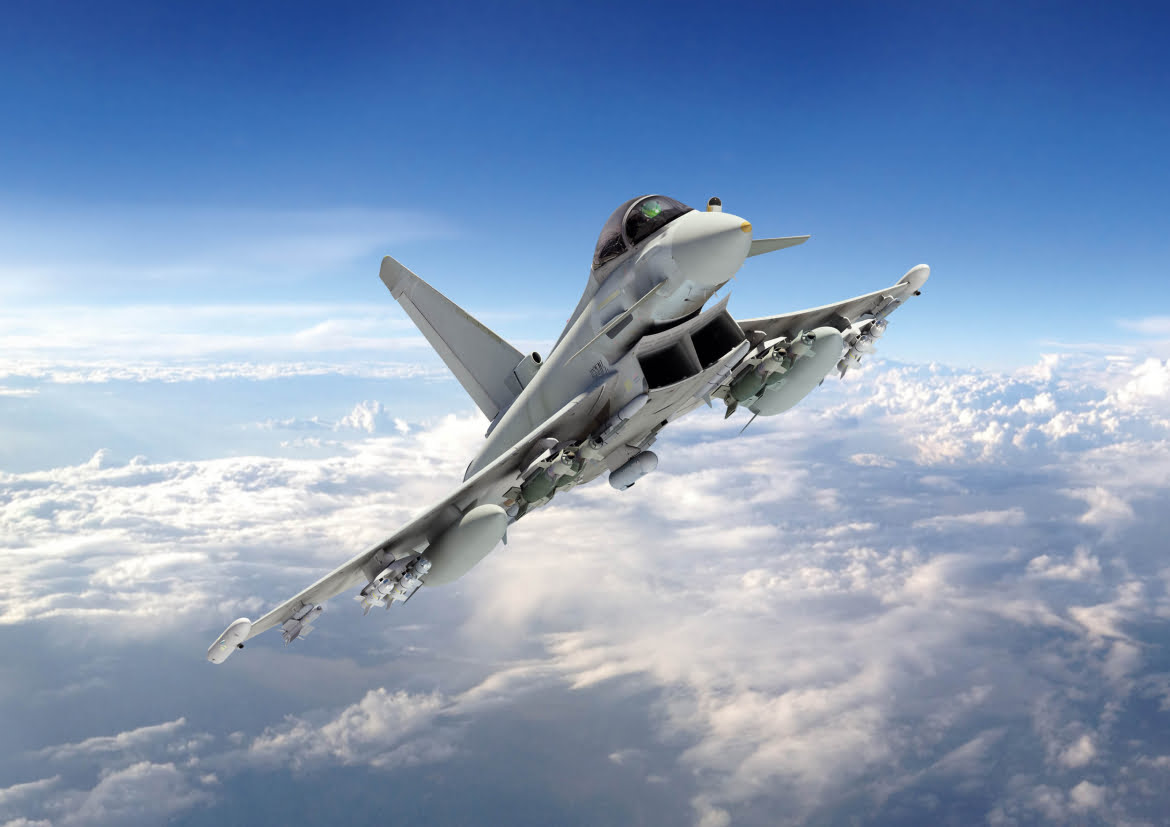By Pierre Tran
Paris – Germany has switched policy tracks with the approval of shipping a batch of Eurofighter Typhoon fighter jets to Saudi Arabia, in the wake of bitter conflict on the Gaza strip and Riyadh’s interest in the French Rafale fighter.
“We do not see the German government opposing British considerations for more Eurofighters for Saudi Arabia,” the German foreign minister, Annalena Baerbock, said Jan. 7 while on a visit to Israel, Reuters reported.
Germany blocked the delivery of 48 Eurofighters, reported to be worth £10 billion ($13 billon), in response to the killing of Jamal Khashoggi, a Saudi columnist for the Washington Post, in the Saudi consulate in Istanbul in 2018, and Riyadh’s support for a civil war in Yemen.
Saudi Arabia flew its Eurofighters to hit missiles fired by the Houthi force based in Yemen, with the Iranian-backed militants seeking to strike Israel. The Houthi attack, which included action at sea, was in response to the Israel Defense Force sweeping through Gaza to take out Hamas irregular fighters.
“The world, especially here in the Middle East, has become a completely different place since Oct. 7,” Berbock said, with the German chancellor, Olaf Scholz, endorsing the following day that shift in arms policy on Saudi Arabia.
U.S. secretary of state Antony Blinken has flown to the Middle East and is holding talks in six nations in a bid to find a settlement. The bloody conflict in Gaza began with the Hamas fighters attacking Israeli settlements, killing some 1,200 civilians and seizing more than 200 hostages on Oct. 7.
It remains to be seen what German approval means for the Saudi interest in the Rafale as an alternative to the Eurofighter.
The executive chairman, Eric Trappier, of the aircraft builder Dassault Aviation told Dec. 5 the Defense Journalists Association, Riyadh had requested information on the Rafale and talks had been held over the last few months.
That Saudi reach out for the Rafale sparked French media reports Riyadh was seeking to put pressure on the German coalition government, already under public criticism from Airbus, one of the leading contractors of the Eurofighter.
The Eurofighter consortium consists of Airbus, BAE Systems, ITP Aero, and Leonardo, contractors in the four client nations, respectively Germany, the U.K., Spain, and Italy.
There has been concern in London and Paris over Berlin’s ban on fresh weapon shipments to Riyadh, as arms exports are seen as needed to boost the public purse and maintain jobs.
Dassault won its first export order for the Rafale from Egypt in 2015, with Cairo calling Paris in response to Washington suspending in 2013 delivery of a four-strong batch of F-16 fighters, the response of the then Obama administration to a military coup d’état in Cairo.
The Saudi policy has long been to order from a wide base of foreign arms suppliers, with Riyadh keen to join as partner nation to the Global Combat Air System, a future fighter project led by Britain, Italy, and Japan.
The Saudi air force flies the Boeing F-15, and the Tornado and Typhoon, the latter two supplied by Britain.
The Saudi navy sails seven French-built frigates and two fleet auxiliary tankers under the Sawari I and II programs, armed with Crotale surface-to-air missiles. French contractors upgraded the Sawari I ships under the life extension contract in 2013.
There has been something of a drought for France in major arms deals with Saudi Arabia since those naval contracts, and the prospect of a Rafale order may have signalled a break in an extended dry period.
A German green light for despatch of the Eurofighter to the Saudi air force has sparked domestic controversy, with the Green party objecting to breach of a coalition agreement.
“The German government decided in the summer not to comply with any requests for Eurofighters to Saudi Arabia until the end of the legislative period,” said Sara Nanni, parliamentarian and a defense spokesperson for Baerbock’s ecology party, website Politico reported. Nothing much had changed in Saudi Arabia, she said.
The German parliament has extensive supervisory power over arms exports, and the Social Democrats and Greens demand sales be restricted by observation of human rights. The third party in the coalition government is the pro-business Free Democrats.
The risk of a wider regional conflict rose over the weekend, with Hezbollah forces in southern Lebanon firing missiles into northern Israel, in response to the killing of a Hamas leader in Beirut. Israel was suspected to be behind the slaying in Beirut. U.S. bases in Iraq and Syria have been hit by drone and rocket attacks from militants, with the U.S. replying with an air strike against a militia leader in Baghdad.
Trappier has voiced concern over Berlin’s resistance to shipping Eurofighters to Saudi Arabia, as that raised question on whether Germany would authorize foreign sales of a new generation FCAS fighter.
The new fighter is at the heart of a European future combat air system, in which France and Germany are founding partners, with Spain as third partner, and Belgium as observer, looking to join as fourth partner at a later stage.


